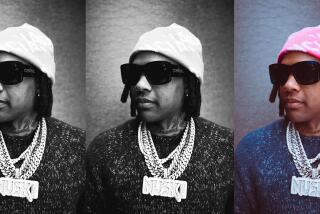De Klerk Must Tell the Truth
- Share via
Have we all been taken for a ride?
Is it true that the government of Frederik W. de Klerk has one posture for the domestic and international public but its real, private view about negotiating a new constitution is something else--something far more ominous and ill-intended?
There was always the nagging fear that De Klerk, who has initiated tremendous changes in South Africa, was simply too good to be true and that the government was really hoping to outmaneuver oppressed blacks, to trick the West into dropping sanctions and to conspire to emerge with its hegemony intact.
That’s a terrible thought. But the very fact that such a question can now be asked is testimony to the serious damage done by the shocking revelation of a secret governmental slush fund backing the black political organization Inkatha. This is the political party headed by Zulu Chief Mangosuthu Gatsha Buthelezi that has long opposed sanctions against South Africa and that has been the primary black opposition to the dominance of the more militant African National Congress, which recently elected Nelson Mandela its president.
The allegation, now confirmed, is that the government, through its security police, funneled substantial amounts of cash to Inkatha for major public rallies--even after De Klerk became president. Such government interference in political-party activity is a slap at the spirit of trust and integrity that is essential to the success of the sensitive negotiations between blacks and whites.
This disturbing scandal threatens to undermine De Klerk’s credibility. Black leaders now fairly ask what kind of man and government they are dealing with. Either De Klerk knew about the slush fund, in which case he was lying to the ANC when he repeatedly denied that Inkatha was receiving any help from the South African police; or he was ignorant of the funding, in which case a renegade element of the secret police is able to operate without fear of reprisal.
The implications of this scandal are especially devastating because De Klerk’s policies had won worldwide admiration--and a reasonable measure of trust from Mandela and other key leaders. Now the scandal threatens not only to destroy De Klerk’s credibility but also to raise doubts within the ANC about Mandela’s judgment in placing so much confidence in De Klerk. Much of the momentum of the talks had rested on their special relationship.
President De Klerk must level with people. He must tell what he knew and when he first knew it. He must not hide anything. If he condoned the secret operations, he must publicly apologize--and promise to end any and all government sabotage. And if he did not know anything about it, he must persuade all concerned that he is on top of the situation now and that he won’t let the secret police get away with anything like this again.
More to Read
Sign up for Essential California
The most important California stories and recommendations in your inbox every morning.
You may occasionally receive promotional content from the Los Angeles Times.













